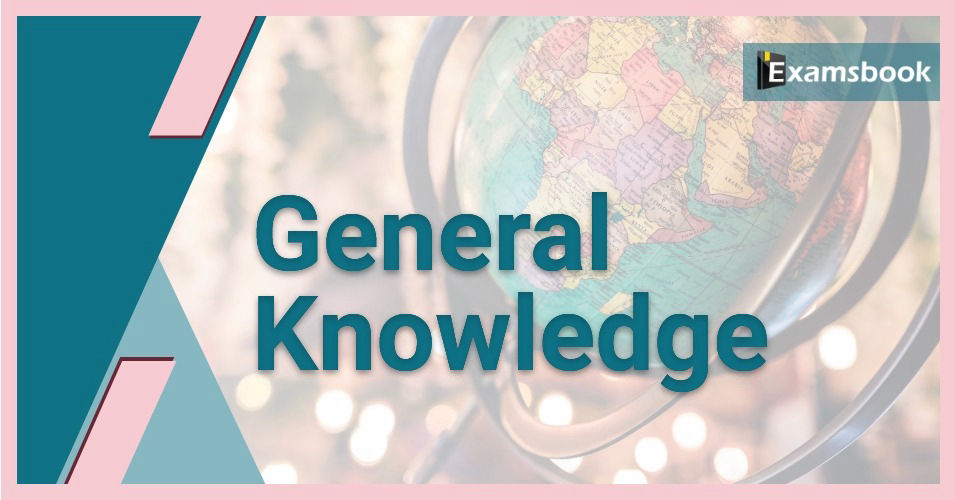General Knowledge (GK) 2023-24: GK Questions, Topics, Mock Test, Practice Quiz

Who among the following was/was a member of the Rajya Sabha at the time of his/her appointment as the Prime Minister?
(A) Chaudhary Charan Singh
(B) Mrs. Indira Gandhi
(C) Lal Bahadur Shastri
(D) P.V. Narasimha Rao
Correct Answer : B
Explanation :
The record of becoming Prime Minister for the first time from Rajya Sabha is also in the name of Indira Gandhi. When Indira Gandhi took over as Prime Minister after the death of Lal Bahadur Shastri in 1966, she was a member of the Rajya Sabha.
Who among the following will administer the oath to a person upon taking office as the President?
(A) Chief Election Commissioner
(B) Chief Justice of India
(C) Outgoing President
(D) Vice President
Correct Answer : B
Explanation :
The oath of office to the President is administered by the Chief Justice of India and in his absence, by the seniormost judge of the Supreme Court.
From the following nominates persons for various parliamentary delegations sent to foreign countries?
(A) Speaker of the Lok Sabha
(B) Prime Minister
(C) President
(D) Rajya Sabha Speaker
Correct Answer : A
Explanation :
The Speaker of Lok Sabha. The Speaker of Lok Sabha is responsible for nominating individuals for various parliamentary delegations to foreign countries.
The President of India during the regime of the Janata Party was
(A) Fakhruddin Ali Ahmed
(B) N. Sanjeev Reddy
(C) Giani Zail Singh
(D) R. Venkataraman
Correct Answer : B
Explanation :
Neelam Sanjiva Reddy (May 19, 1913 – June 1, 1996) was the sixth President of India.
How many times national emergency has been imposed in India after independence?
(A) Once
(B) Twice
(C) Thrice
(D) Four Times
Correct Answer : C
Explanation :
India has declared a national emergency 3 times since independence. The state of emergency was declared due to external or internal threats to the nation or due to a financial or political crisis.
What are the D.K. Basu guidelines which were laid down by the Supreme Court of India?
(A) guidelines related to prevention of sexual harassment at workplace.
(B) guidelines related to protection of children from hazardous employment.
(C) guidelines related to protection of women from domestic violence.
(D) guidelines related to the procedures to be followed by police for arrest, detention and interrogation.
Correct Answer : D
Explanation :
D.K. given by the Supreme Court of India. The Basu Instructions are instructions regarding procedures to be followed by the police during arrest, detention and interrogation.
In 1997, the Supreme Court in India formulated the Vishakha guidelines to protect women from sexual harassment_______.
(A) in vehicles
(B) at work places
(C) in marital relationship
(D) on streets
Correct Answer : B
Explanation :
In 1997, the Supreme Court of India enacted the Vishakha Directive to protect women from sexual harassment in workplaces.
Which of the following not a feature of Representative Democracy?
(A) Representatives chosen through elections.
(B) Decision making in the hands of the representatives.
(C) Direct participation of people in decision making.
(D) Franchise rights to people.
Correct Answer : C
Explanation :
Which of the following is a characteristic of representative democracy.
(1) Election of representative by voting
(2) The process of decision making in the hands of representatives
(3) The public has the right to vote
What is the name of the ambitious plan of the Central Government to provide a unique identification number to all the citizens of the country?
(A) Aadhaar
(B) Focus
(C) Change
(D) None of these
Correct Answer : A
Explanation :
Aadhaar is a 12 digit individual identification number issued by the Unique Identification Authority of India on behalf of the Government of India.
Justice U. C. Banerjee Commission was constituted.
(A) To investigate the Godhra riots
(B) To investigate the Sikh riots
(C) To investigate fodder scam
(D) To investigate coal scam
Correct Answer : A
Explanation :
The Central Government had constituted the Banerjee Commission for a technical investigation into the alleged incident of burning of Sabarmati Express train overloaded with devotees at Godhra Railway Station on 27 February 2002.



